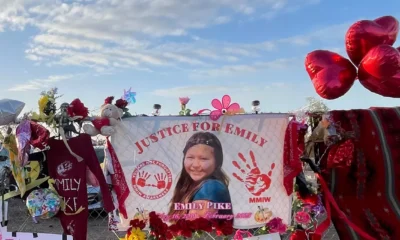arizona
Arizona Voters at Risk of Registration Cancellations Due to Citizenship-Proof Blunder

Arizona’s voter rolls may face significant changes due to a legislative proposal that targets approximately 200,000 residents who were not asked to provide proof of citizenship when registering to vote. GOP state Representative Alex Kolodin introduced House Bill 2038, which aims to clarify the eligibility of these voters in response to requests from county recorders for guidance on handling this issue.
Since state officials identified the problem last summer, there has been mounting pressure on Secretary of State Adrian Fontes, a Democrat, for lacking adequate direction. Kolodin’s proposal stipulates that if county recorders request proof of citizenship from these voters and they fail to respond within 35 days, their registration status would be suspended. Should they attempt to vote under this suspended status, they would have until 7 p.m. on Election Day to provide the required documentation for their votes to be counted.
If proof remains unprovided after the general election in 2026, the recorders would be mandated to cancel the voter’s registration. Critics of this legislation, including Fontes’ office and voting rights group All Voting is Local Action, argue that these voters should retain eligibility for federal elections, as the state requires proof for local and state ballots, but only an assertion of citizenship for federal ones.
Although a majority of county recorders expressed initial support for Kolodin’s bill, deliberations are underway regarding its overall appropriateness and impact. Time is of the essence, particularly with all-mail local elections scheduled in several counties for March and May. Some counties are already notifying affected voters, while others hold off pending clearer directives, leaving many unaware of their need to provide proof of citizenship.
The voters in question have resided in Arizona since before 1996 and registered to vote following 2004; due to errors in the state’s driver’s license and voter registration systems, citizenship proof was never requested. While there is consensus that the majority are likely U.S. citizens, the responsibility for this oversight lies not with the voters themselves.
Initially, stakeholders seemed poised to tackle the issue collaboratively, even petitioning the Arizona Supreme Court to pause the citizenship proof requirement for affected voters during the November election. However, complications have arisen, exacerbated by political dynamics and misunderstandings regarding state law and the court’s orders.
There was an expectation that county officials would afford these voters the opportunity to submit citizenship proof. Upon failure, it was assumed some would transition to the federal-only voting list. However, the September ruling by the state Supreme Court, which temporarily alleviated the requirement, introduced ambiguity regarding the path forward, leaving many questioning the implementation of existing laws on voter eligibility.
The confusion largely stems from two voter citizenship laws enacted in 2022 that limited eligibility without citizenship proof and specified more frequent checks. These laws faced immediate legal challenges from voting rights advocates, with parts still under litigation. One contentious point highlighted by the U.S. Supreme Court last summer mandates that if a voter registers using the state’s form without proof, their registration should be rejected. Previously, such individuals would have been included as federal-only voters.
The critical question remains whether these laws affect new registrants only or if they also apply to the existing 200,000 voters caught in administrative errors. Following Kolodin’s proposal, Amy Chan from Fontes’ office issued a letter seeking to clarify the position: if proof is not submitted, these voters should be treated as federal-only voters, based on the intended functionality of the system.
During the committee meeting, concerns were raised regarding the potential confusion and ramifications of completely removing these voters from the rolls. Natalia Sells from All Voting is Local Action emphasized that such a decision would infringe upon a prior federal court settlement and breach equal protection statutes, urging lawmakers to uphold voting rights.
In contrast, Kolodin articulated his belief that the Arizona Supreme Court’s ruling allows for the potential removal of these voters from the rolls. This legislative development has sparked contentious debate among officials as they seek an equitable resolution.
















